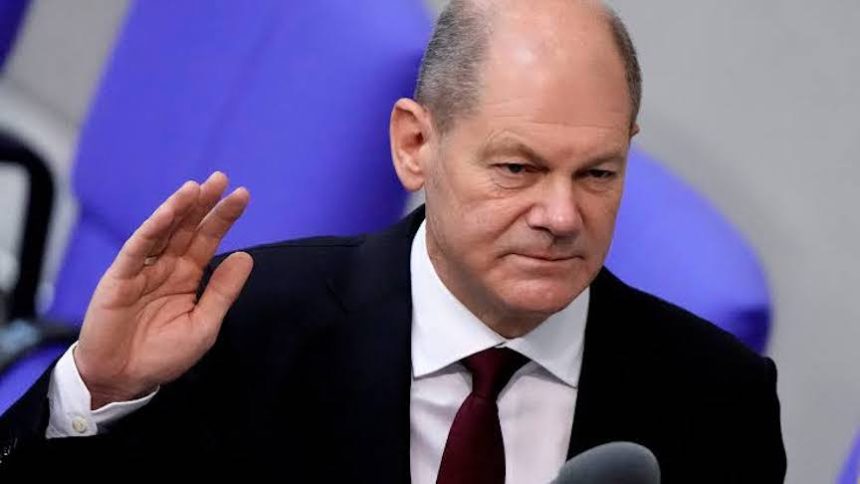Germany slips into recession as economy shrinks by 0.3% in 2023

Admin I Monday, Jan. 15, 2024
BERLIN – Germany’s gross domestic product (GDP) shrank by 0.3% in 2023, according to preliminary figures from the Federal Statistical Office, confirming that Europe’s largest economy spent the year in a recession.
The agency estimated on Monday that the economy also had a poor finish to the year and shrank by 0.3% in the fourth quarter.
“Overall economic development faltered in Germany in 2023 in an environment that continues to be marked by multiple crises,” Ruth Brand, the head of the agency, said on Monday.
Germany had seen GDP growth of 1.8% in 2022 but slowed considerably during the past year.
Consumer spending has declined in the face of persistent inflation, while the country’s exporters have seen sluggish global demand for exports, including China.
According to preliminary data, the average inflation rate for the year was 5.9% – the second-highest figure since Germany reunified in 1990. The highest figure was posted in 2022, with an inflation rate of 6.9%.
“Despite recent price declines, prices remained high at all stages in the economic process and put a damper on economic growth,” Brand said. “Unfavourable financing conditions due to rising interest rates and weaker domestic and foreign demand also took their toll.”
According to economists, the outlook for the current year has become gloomier, with few expecting an economic recovery in 2024. Many economic researchers have recently lowered their forecasts.
Some German economists forecast growth of less than 1% and have not ruled out another decline in gross domestic product during the coming year.
The Institute for Macroeconomics and Business Cycle Research (IMK), which is affiliated with the trade union-backed Hans Böckler Foundation, partly blamed Germany’s strict limits on government debt for the slowdown.
The rules, known in Germany as the debt brake, are hampering necessary investments in infrastructure and climate projects, the foundation said.
While spending is being limited, the constitutional debt brake conditions were again suspended in Germany in 2023 as the government cited emergency conditions.
The suspension of the debt brake was one result of a budget crisis, after the country’s Constitutional Court ruled that prior spending plans by Chancellor Olaf Scholz’s coalition government violated the constitution.
In 2023, Germany’s federal, state and local governments once again spent more money – €82.7 billion more ($90.4 billion) – than than they took in, according to provisional data released on Monday.
Nevertheless, after large deficits in 2020 and 2021 during the coronavirus pandemic, Germany now appears to be back in compliance with European Union rules for the second year in a row.
Germany’s government budget deficits amounted to 2.0% of total economic output in 2023, according to preliminary calculations. In 2022, it was 2.5%.
The EU’s Growth and Stability Pact calls for member countries to limit annual budget deficits to no more than 3% of GDP, and total debt to no more than 60% of GDP.
Enforcement of those rules was suspended during the coronavirus pandemic. Negotiations over changes to the rules are ongoing.

